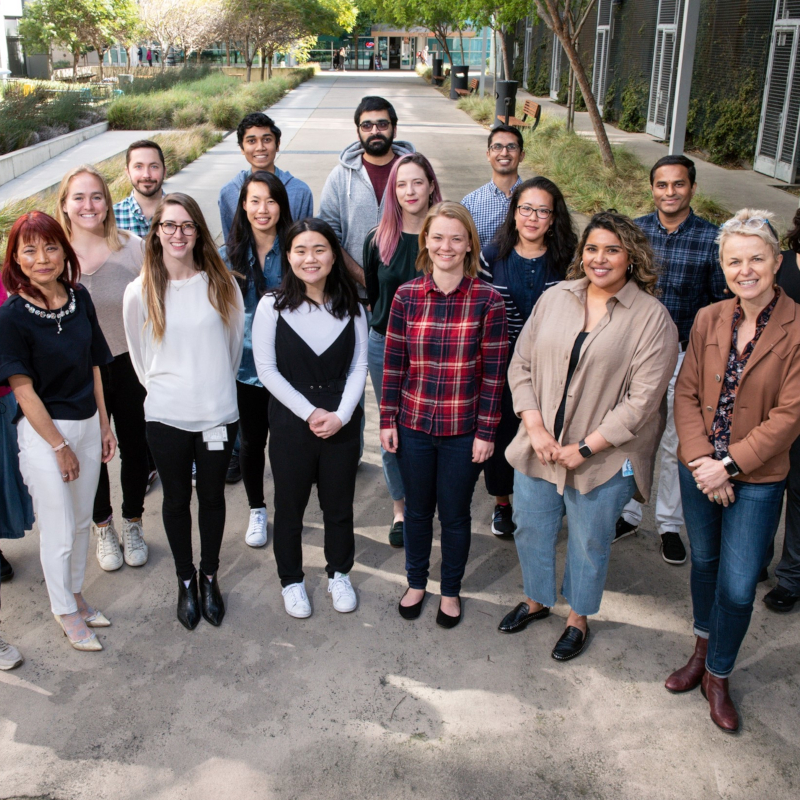Cell and molecular biology
The Royal Society journals Open Biology, Royal Society Open Science and Philosophical Transactions B publish research articles, reviews, open questions, methods and techniques, short communications, and theme issues in all areas of cell and molecular biology.
Open Questions competition
Open Biology invites you to submit an Open Questions article and participate in our inaugural Open Biology Open Questions competition. Enter by submitting a pressing, understudied or interesting ‘open question’ in cellular and molecular biology. Participants have the chance to win an overall prize of £1,000, and enjoy a full Article Processing Charge (APC) waiver.
Seminars
Our cell and molecular seminar series features research published in Royal Society journals. Each talk is associated with a recent paper or theme issue, selected by the journal's editors as being particularly innovative or having had significant recent impact. Subscribe to the series for updates.
Recent highlights
A sample of our recent seminars can be found below – check out the full seminar series to see these and more.
Collaboration between scientists and clinicians is essential for the development of novel treatment avenues throughout medicine, and this is clear in our recent seminar discussing a new therapeutic target for traumatic brain injury. Hear Professor Sir Mark Pepys FRS and colleagues discuss their study, from lab science through to the complexity of treatment and applications.
How do plants defend themselves from pathogen attack? In this seminar from Professor Jane E Parker FRS, we learn about the important role NLRs (essential intracellular sensors of pathogen factors) play in pathways protecting plants from succumbing to disease.
Protein-protein interactions are complex and numerous, and improving our understanding of them is crucial to elucidating cellular processes that underpin disease progression and development. In this recent seminar from Dr Asami Oguro-Ando, we heard about the role of CNTN4, a neuronal cell adhesion molecule, and amyloid-precursor protein, a key protein in Alzheimer’s disease.
Latest research
Looking for exciting work in cell and molecular biology? Discover top research published by us in recent years.
Philosophical Transactions B theme issues
- Causes and consequences of stochastic processes in development and disease
- The virtues and vices of protein citrullination
- The heartbeat: its molecular basis and physiological mechanisms
- Extraembryonic tissues: exploring concepts, definitions and functions across the animal kingdom
We are always looking for proposals for theme issues in cellular, molecular and developmental biology. Find out more about how to submit a proposal and become a guest editor.
Open Biology special features
Article collections
Browse all cell and molecular biology articles published across the Royal Society journals.
From the archive
A new collection of Royal Society Biographical Memoirs of Fellows of the Royal Society celebrates the scientists who initiated the study of physiological mechanisms at the cellular level, uncovering the biophysical basis for how animal movement is initiated. The structural and molecular biology memoir collection celebrates the pioneers who uncovered the structures, functions, and relationships of proteins and genetic material.
The Royal Society has been publishing scientific articles for over 350 years. Browse the Royal Society Journals Archive for a fascinating insight into the development of science and covers some of the key moments in scientific history.
Conferences
Meet us at Cell Bio 2024 in San Diego, US, 14-18 December 2024.
Meet our authors
Dr Stephan Neuhauss on the paradoxical role of glutamate transporters in vertebrate retina synapses.
Read more
Dr Asami Oguro-Ando on the role of risk gene CNTN4 and APP in neuronal development.
Read more
Dr Dipesh Chaudhury on the biological link between mood disorders and temperature rhythmicity using a mouse model of stress.
Read more
Journals to know about
Open Biology is a fast, open access Royal Society journal publishing high impact biology at the molecular and cellular level. The journal publishes original, high quality, peer reviewed research. Article types include ‘open questions’ which highlight underfunded and understudied areas of biology, methods and techniques and short communications. The journal promotes transparent review, open discussion, and has introduced a section within articles called ‘opening up’ where researchers are encouraged to discuss the significance of their results in a wider context.
Royal Society Open Science is an open access journal publishing high-quality original research on the basis of objective peer-review. The journal covers the entire range of science and mathematics and allows the Society to publish all the high-quality work it receives without the usual restrictions on scope, length or impact. It welcomes the submission of all high-quality science including articles which may usually be difficult to publish elsewhere, for example, replications or those that include negative findings.
Philosophical Transactions B publishes high quality theme issues on topics of current importance and general interest within the life sciences, guest-edited by leading authorities and comprising new research, reviews and opinions from prominent researchers. Each issue aims to create an original and authoritative synthesis, often bridging traditional disciplines, which showcases current developments and provides a foundation for future research, applications and policy decisions.






















